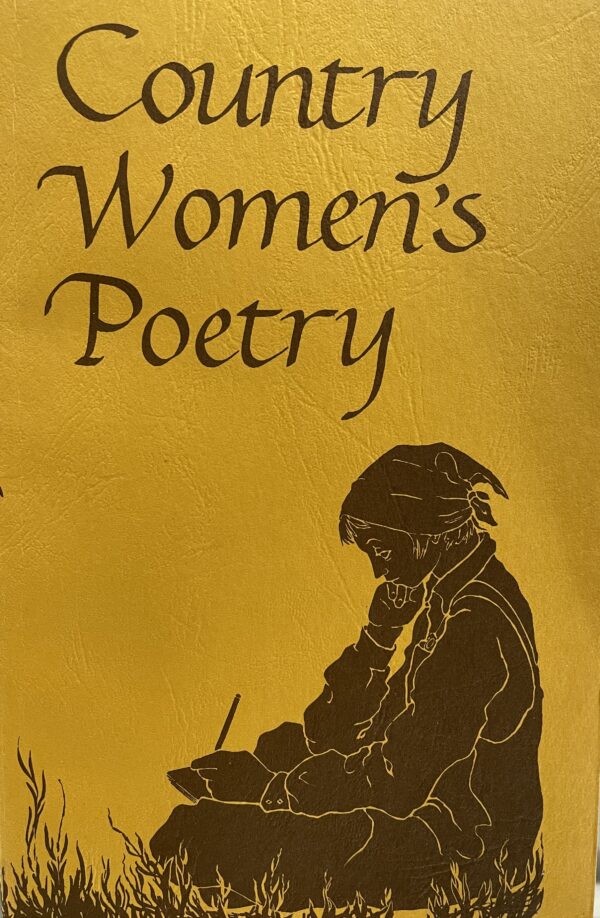As April is National Poetry Month, I decided to look through the Kelley House archives to see what sort of poetry selections we had. I was pleased to discover that we have a few and was immediately drawn to our collection of Country Women magazines. The publication—published from 1974 to 1979—called itself “a feminist country survival manual and a creative journal” and contained essays, stories, and poetry by and about women in the collectives in the Albion area back in the heyday of communal living. Included among the many issues we have is a volume of Country Women’s Poetry.

The Country Women special poetry anthology, published in August 1975.
The book’s 79 poems touch on topics as various as nature, love, existence, and goats. One of my favorites is a poem by Barbara Mullen, “Some Notes on Enlightenment and Liberation,” which ends with the following:
“Somewhere in the center of my stomach observation teaches me that I am slightly crazy, inept, capable, brave, insecure, female, male, like everybody.”
Our archives also hold a scrapbook made by Daisy Kelley MacCallum containing articles and poems written by Ella Wheeler Wilcox, an American writer and freethinker who penned the famous line “Laugh, and the world laughs with you; weep, and you weep alone.” She wrote a column that was syndicated in the Hearst newspapers on topics as various as motherhood, card playing, corsets, and the wisdom of marrying a man in order to reform him. Daisy MacCallum seems to have cut out nearly every column and pasted it into her book. The very reassuring poem “Achievement” caught my attention:
“Trust in thine own untried capacity As thou wouldst trust in God Himself. Thy soul Is but an emanation from the whole. Thou dost not dream what forces lie in thee.”
More poems by Mendocino’s women were published in Wood, Water, Air and Fire: The Anthology of Mendocino Women Poets, published in Comptche in 1999 by Pot Shard Press. Sixty-three women, ranging in age from 15 to 88, are represented in the book. It was hard to choose among the many poems, but I think “The Happy Nights,” by Virginia Sharkey, captures the magic of Mendocino:
“These stars, little salt specks in the bolted-shut dark. Two friends, night strollers, trace the broken white stripe down the vacant asphalt road. Thirty yards over, left across headlands, the Pacific mulls over its nightmares. That’s three times lucky: To live on the edge, roam under stars, and practice being tiny.”
If you would like to read more of these poems, the Kelley House Archives are open for research appointments on Wednesdays from 12 PM-3 PM, and Fridays & Saturdays from 11 AM-3 PM.
The Kelley House Museum is open from 11AM to 3PM Thursday through Monday. If you have a question for the curator, reach out to curator@kelleyhousemuseum.org Walking tours of the historic district depart from the Kelley House regularly.